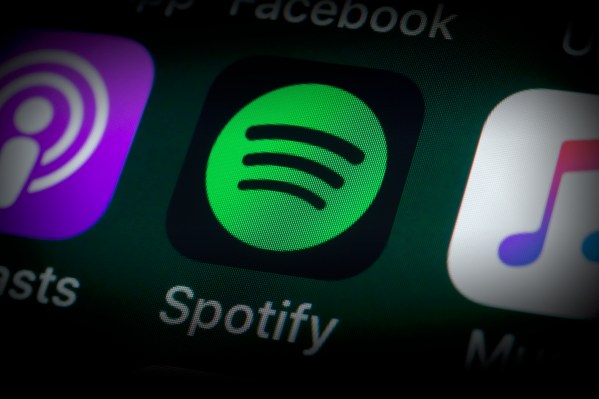Musicians have taken issue with Spotify’s artist compensation for about as long as there’s been a Spotify. Making a living as a musician is difficult enough for the vast majority of those who are brave — or perhaps foolish — enough to attempt such things, but being thrown in a seemingly endless pandemic has made it near impossible for many.
This week the Union of Musicians and Allied Workers (UMAW) launched a campaign aimed at highlighting some of the issues around the streaming giant’s model. There are demands, as well. At the top of the list is a seemingly small one: one cent per stream on the service. Justice at Spotify has its own site, along with a petition, asking artists to sign on.
“With the entire live music ecosystem in jeopardy due to the coronavirus pandemic, music workers are more reliant on streaming income than ever,” the org writes. “We are calling on Spotify to deliver increased royalty payments, transparency in their practices, and to stop fighting artists.
Organization rep Damon Krukowski told TechCrunch that the reaction so far has been overwhelmingly positive among artists. And, as anticipated, less so among some in the industry.
“Response to our Justice at Spotify campaign from musicians has been quick and positive — we are about to hit 10,000 signatures by artists in only the first 48 hours,” Krukowski writes. “At the same time, response from certain corners of the industry has been as cold as we expected: ‘You’re just musicians and don’t understand business,’ is the basic gist of it. To which I would say: The problem we are calling attention to is precisely that musicians have been left out of the conversation! We always come last in payment and in consultation — even though our work is what the streaming business is built on.”
The growing list of signees includes a number of prominent names — including, unsurprisingly, many in indie music who have been disproportionally hurt by changing models and the current lockdown. Names include Thurston Moore, Saul Williams, Ezra Furman, New Bomb Turks, Frankie Cosmos, Guy Picciotto, Speedy Ortiz and Mary Lattimore.
Spotify CEO Daniel Ek caused a storm of controversy in July with seemingly callous comments about artist compensation as live shows have all but completely dried up during the pandemic. “Some artists that used to do well in the past may not do well in this future landscape,” he told Music Ally, “where you can’t record music once every three to four years and think that’s going to be enough.”
Meanwhile, the service has poured millions into content and startup acquisitions to gain a foothold in the podcast industry. That includes a $100 million acquisition of the Joe Rogan Experience, which continues to cause controversy among the public and, reportedly, Spotify’s own staff.
We’ve reached out to Spotify for comment and will update accordingly when we hear back. Krukowski says the next steps for the organization will largely depend on the response from Spotify and the will of its members. “We have ideas for next steps in this campaign but that will depend on how it is received by both our fellow musicians, and Spotify,” he says.
